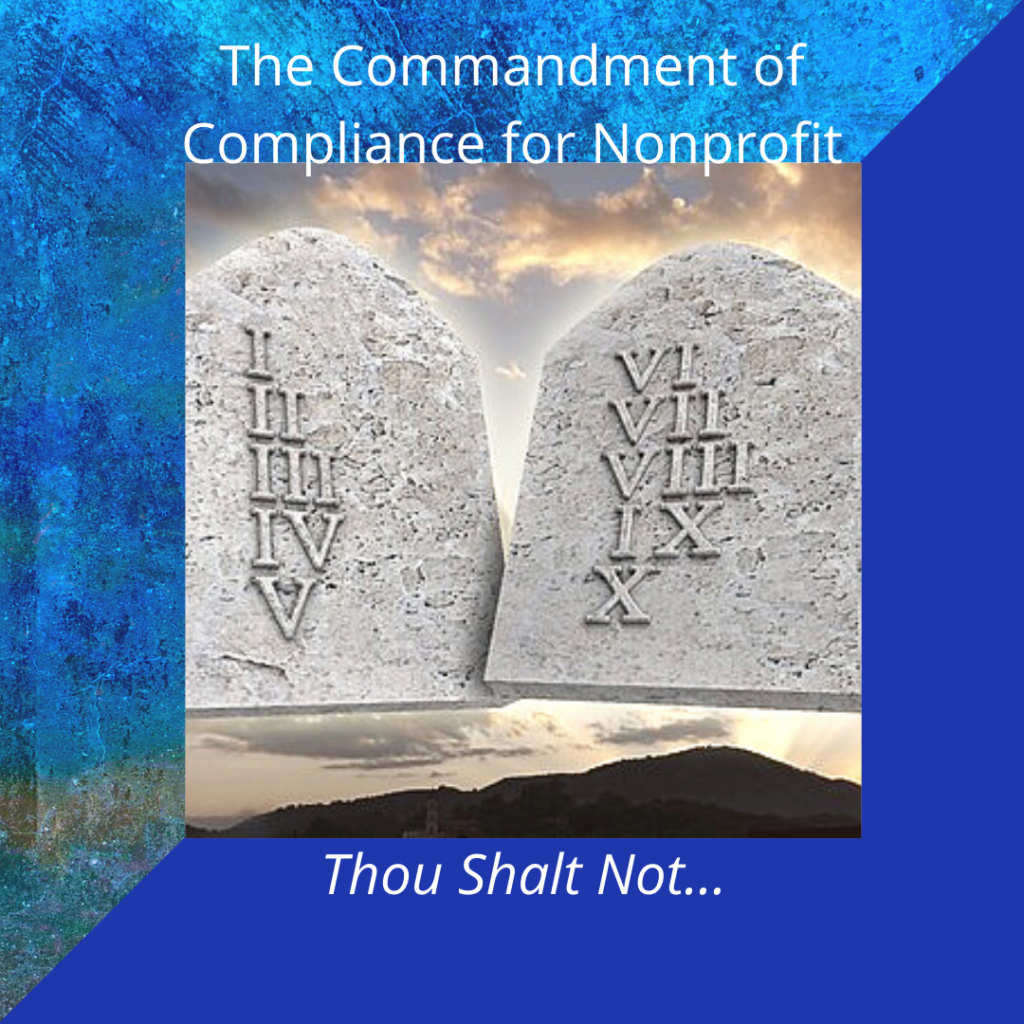Compliance Checklist: Thou Shall and Shall Not as a Nonprofit

- Have any shareholders. A Non-Profit Corporation is different from a For-Profit Corporation because it has NO shareholders to whom dividends accrue. So, even if a Non Profit becomes well enough known that wealthy businesspersons want to invest as shareholders, they may not do so.
- Expend income on anything intended to advance any purpose other than your tax-exempt purpose. For example, you may rent a part of your building, throw a fundraiser, or host a movie night. However, these profits must ultimately be used for advancing your non-profit purpose(s).
- Contribute to a political campaign(s). In addition to removing 501(c)(3) status, the IRS can require payment of special taxes when a 501(c)(3) Non-Profit contributes to any political campaign(s).
Thou Shall
- Keep good records. Record-keeping is essential, in order to properly file annual returns with the IRS (namely the 990, addressed below). Moreover, proper records are essential to defense if a member, officer, director, or client accuses a Non Profit of impropriety. These records are also essential if a Non Profit suspects an officer, director, or member of impropriety.
- File a 990 informational return on time. Failure to timely file a 990 informational return to the IRS can lead to the automatic revocation of a Non-Profit’s tax-exempt status. Access the 990 forms here. (Note that this will not apply if you are a private foundation, in which case you would be required to file a 990-PF).
- Act in accordance with Company Bylaws. The Bylaws are the laws that govern a company. To stray from those laws means the potential lawsuit, especially for any members, officers, or directors harmed by such violation(s).
- Conduct proper board meetings. A Non Profit should have a board meeting at least annually to conduct affairs and monitor compliance. More regular meetings are highly encouraged. Important to note, board meetings are typically addressed in the Company Bylaws.
Thou May…
- Pay members, officers, and directors. Profits may accrue to members, officers, and directors who earn them through salaries or expense reimbursement.
- Pay independent contractors. Profits may accrue to independent contractors at the rate of reasonable payment for services rendered.
The Commandments of Compliance for Nonprofits Part1
